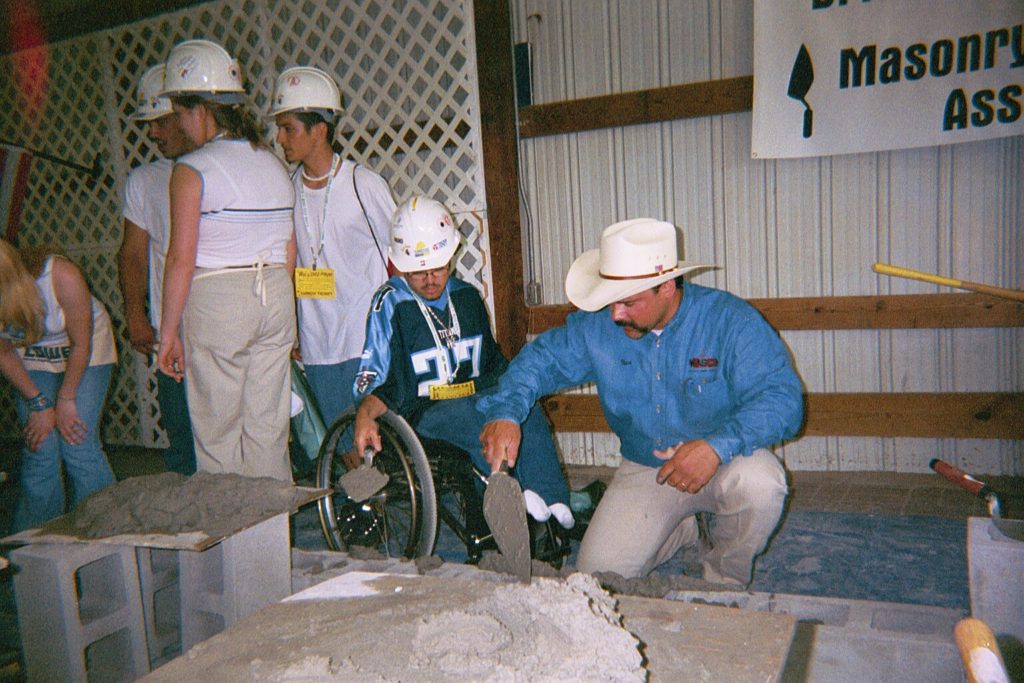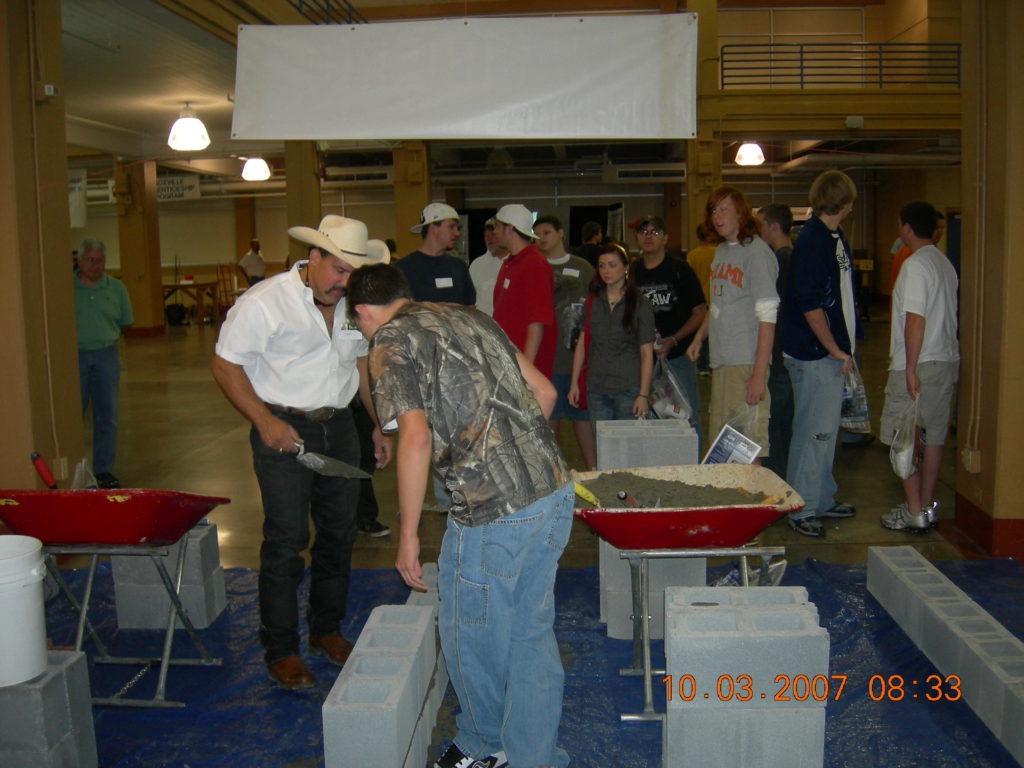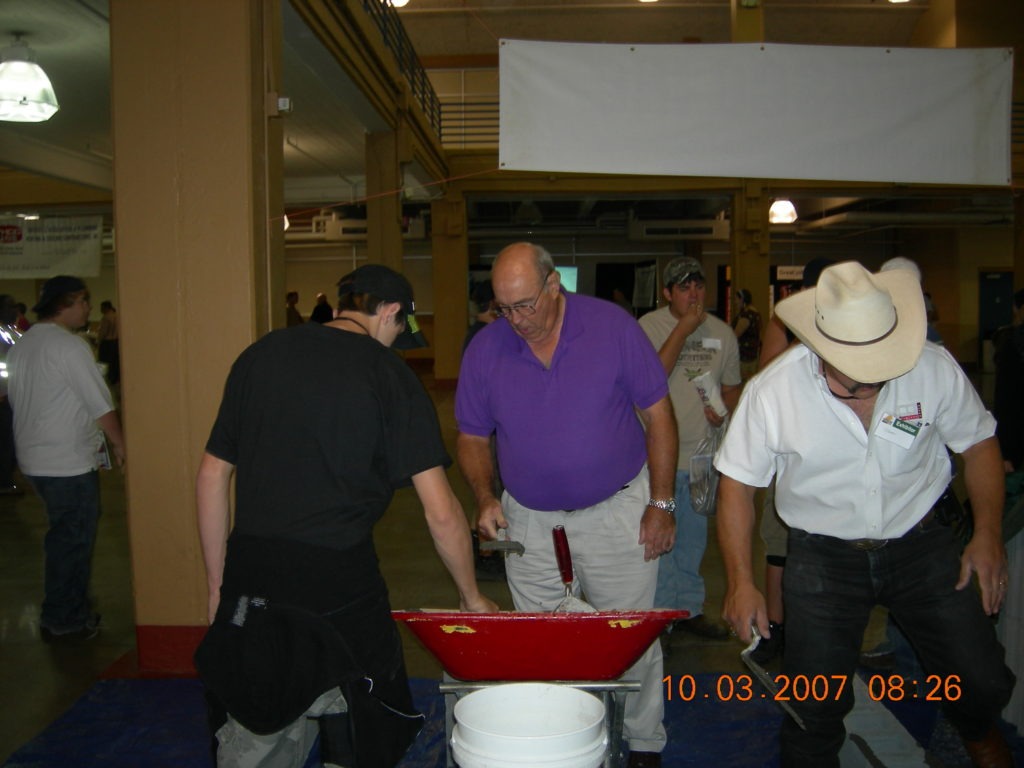Remember That First Day You Walked On A Jobsite?
Words: Curtis Hoover
Words: Curtis Hoover
Photos: Steven Fechino
Remember that first day you walked on a jobsite as a young apprentice starting or a mason tender? For me, it was one of the most exciting things that had happened to me. You get to be a part of constructing the project instead of watching it be constructed. Also, remember how you were talked to by the older seasoned journeyman. You had to have some tuff skin and wondered why they said some of the things they did.
As we finally get back from the Covid 19 Pandemic, and all school programs and training centers are back to normal classes, we still have programs that are not at full capacity. After talking to many instructors, it is going to take a couple of years to get out of what we have called the Covid 19 era. As we all knew, the challenge was keeping students' interest when we were teaching virtually or hybrid classes; there was little or no hands-on training. For me, it was one day a week for two hours, and only about 20% of students showed up.
Unfortunately, we all have to remember that these students coming into our classrooms are not the same students before the pandemic (question, why are the students different?).

School/district policies have changed significantly, with the exception of very few. That made teaching our programs even more challenging due to these new policies. Discussing these policies with other instructors from across the country, we all came to the conclusion that when preparing our pre-apprentices for the workforce, they had to be ready on day one. With all of the changes, is it realistic to think we can really prepare them for that first day on the job? The majority of these students have missed one or even two semesters of training, and if you are in a secondary or post-secondary program, this is tough to make up for the lack of training.
When that young apprentice walks on the job for the first time, it can be a little overwhelming for them. There are, however, a few exceptions. We all get some students that have family in the trade and have already been exposed to these conditions at one point or another. The jobsite is nothing like the classroom/shop area and the training facility. Equipment that they will see on the job may have only been exposed to them via video, YouTube, or reading from the textbook. Major equipment exposure to scaffolding, table saws and even a forklift may be missing from the training they were to receive due to the pandemic and or the fact that the public education system they are trained in does not allocate the proper funding or they are just not available.

As the top masonry students gathered in Atlanta, Georgia, for the National SkillsUSA Championship in June and in person for the first time in 3 years, I spoke with a number of instructors and contractors who were judging the competition. We discussed the challenges of today's younger generation working with the older generation. Every contractor has their own company culture, to which every apprentice needs to adhere too. Each contractor I spoke with stated that attendance was their number one priority. Unfortunately, again, the school systems over the last two years have not been all that concerned about this. We talk daily to our students that they must show up every day and on time (minimum 15 minutes early) or they will not have a job very long. It shows the contractor that you are dependable. In return, the contractor or foreman on the job should acknowledge this. The apprentice needs to keep their ears open and listen to all information that is given to them.
Especially when shared by the veteran mason, they are passing their knowledge and skills onto the student to help them become successful in their career. This should be stated to the apprentice from the older mason. Apprentices have to be humble and open-minded when information is shared or taught. Apprentices are the future of our trade, and we must remind them of the importance of this. Safety is also taught daily, and the apprentice needs to be reminded daily.

Giving the apprentice constructive criticism when needed and praise for a job well done is important to today's students. Let the apprentice know that they are as important as the journeyman. It's a team effort, and we know everything on the job has a schedule to meet, but the contractor needs to take a little extra time with these young green apprentices and keep them motivated and appreciated. Have your older veteran mason who can work and talk with the apprentice spend time working together for a period of time. Get to know them and their ambitions. This will help them adapt to the job and make the transition easier when they have to work with other masons on the job. The bottom line is that it is all how you talk to them. We do not want to run them off the job. Respect is a two-way street, give it and get it. What was done to us when we started (older generation) on the job cannot happen with today's generation. Yes, we can be hard on them, but it's how we go about it.
It also helps them transition from school to the worksite easier if contractors get involved with the local schools in their area. Most schools have some kind of business partnership for each program. Set up a table for back-to-school night, open house, or even a career day. Go talk to the student during class, and let them hear it from you and not only the teacher. Watch them work on their projects. I know as a teacher that I loved having contractors come into the class and show different techniques to the student beside me. This motivates the students to do their best because you may be their future employer. Bottom line, GET INVOLVED!